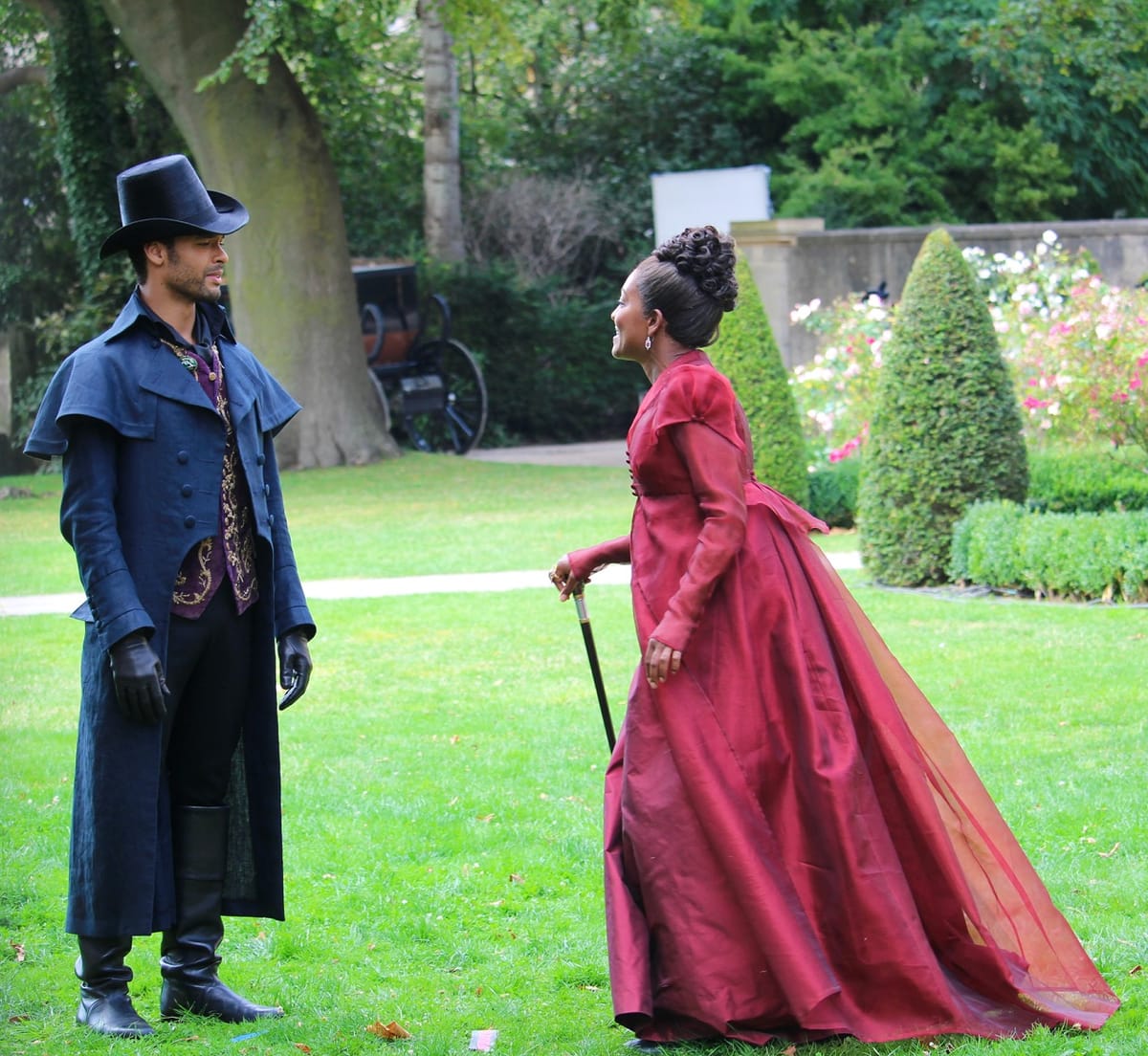Why Does the Internet Want to Bash Bridgerton So Bad?
Be careful, your petticoats are showing, and your prejudice is starting to slip.

Access the Audio Read version of this article directly on Spotify for Podcasters.
“It’s almost as if, *shakes fan*, Black culture and trauma are okay, but successful, wealthy, beautiful Black and Brown bodies taking up space, and story, is not.”
Very much akin to Cressida Cowper, 2021 seems to be on a mission not to be outdone. From bringing in its first week with sedition and white hypocrisy to stripping its narcissist leader all the way back to the good ole days of pen and paper, it seems that anyone who is not a fascist has a front-row seat to the best scandal since… well, Scandal.
For those of us who haven’t been glued to the news, a bit of escapism has arrived in the perfectly wrapped package of Bridgerton, Shonda Rhimes’ latest production of intrigue, drama, and of course, romance. Bringing a ton of humorous mystery to the Ton of London, Rhimes’ latest triumph (based on the books written by Julia Quinn) has led viewers far and wide attempting to guess (or keep secret) who truly is the identity behind society’s best gossip since Gossip Girl, Lady Whistledown.
As an English major who has broken her cardinal rule of reading the book before watching the movie or show, I found Bridgerton to be full of all the bells and whistles a romance lover could hope for: a hero worth falling for ( #YourGrace), an essential question worth exploring, and enough shade to make you wish you had your own gossip column. Still, even as Rhimes’ latest tour de force reaches over 63 million viewers (and counting, judging by the posts I see on Facebook), there are some who still manage to have a bee in their bonnets over one small detail: Black people have come to Bridgerton. *gasp and fan*
Quite reminiscent of Lady Featherington, who has a penchant for asking questions she already knows the answers to, the internet has been having a meltdown over the use of Black actors in a period drama. And that’s when I paused and wondered, what is the actual problem here?
When reviewing the *fiction* drama for Gal-Dem in a piece that acknowledges Britain’s history of colonisation, racism and slavery, writer Michele Thiel had a particularly interesting inquiry: “The original books never discussed racism, so why did the Netflix adaptation choose to address it?”
This got me thinking, a lot. Maybe that is because the Executive Producer of the show is Black herself? Perhaps because Britain has never actually been “post-racial”, and still has a problem with race that rivals its colonised baby, America? Or because Rhimes, who left a major network for its problems with race and discrimination, merely wishes for Netflix to do better, both in front and behind the camera? Ultimately, it may be because despite what naysayers think, diversity is a good thing that actually gains more fans, particularly fans outside of the genre?
Bridgerton’s record numbers not only display a fondness for its innovation but has also created a push for historical dramas by Black authors (Bridgerton’s Julia Quinn is not). I disagree with calling Bridgerton “an odd viewing” because the show does not beat the issue like a dead horse - It doesn’t quite do the service one would think. Instead, it calls to reason a more important question: Why do Black characters have to bear the burden of calling out racism, particularly in a show that is allowing opportunities for Black characters to be more than just trauma bearers?
Such is not the sentiment of just one Black woman who enjoys a good historical romance. Indeed, Bridgerton has caught the eye of many critics for its attempts at airing out the genre’s diversity and inclusion issues. Amanda Rae Prescott, one of the official critics of Bridgerton and writer for Den of Geek, discussed how Bridgerton is free from the traumas of slavery and colonialism. One of many who pushes back against the limits of whiteness in historical fiction and period dramas, Prescott challenges viewers to consider exactly why they always resort to ‘but it isn’t in the text’ when referring to the presence of Black and Brown bodies.
After all, neither is the Vitamin C Quartet’s rendition of “Thank You, Next” or “Bad Guy”, yet viewers absorb those like a sponge. They gawk at Duke Simon Hastings being the most eligible bachelor (all while thirsting after him, I might add), but say nothing of Marina Thompson’s stereotypical woes. We wouldn’t hear a peep if the servants and rabble were Black, but people take issue with Lady Danbury being able to gain an audience with Queen Charlotte (whose own biracial heritage is both scoffed and scorned). It’s almost as if, *shakes fan*, Black culture and trauma are okay, but successful, wealthy, beautiful Black and Brown bodies taking up space, and story is not.
Meanwhile, Bridgerton continues to make a debut rivaling that of The Diamond of the Ton, we can only come to expect more Black excellence in Season Two, and we can only hope (and demand) that Bridgerton continues to set the precedent for more of its kind.





